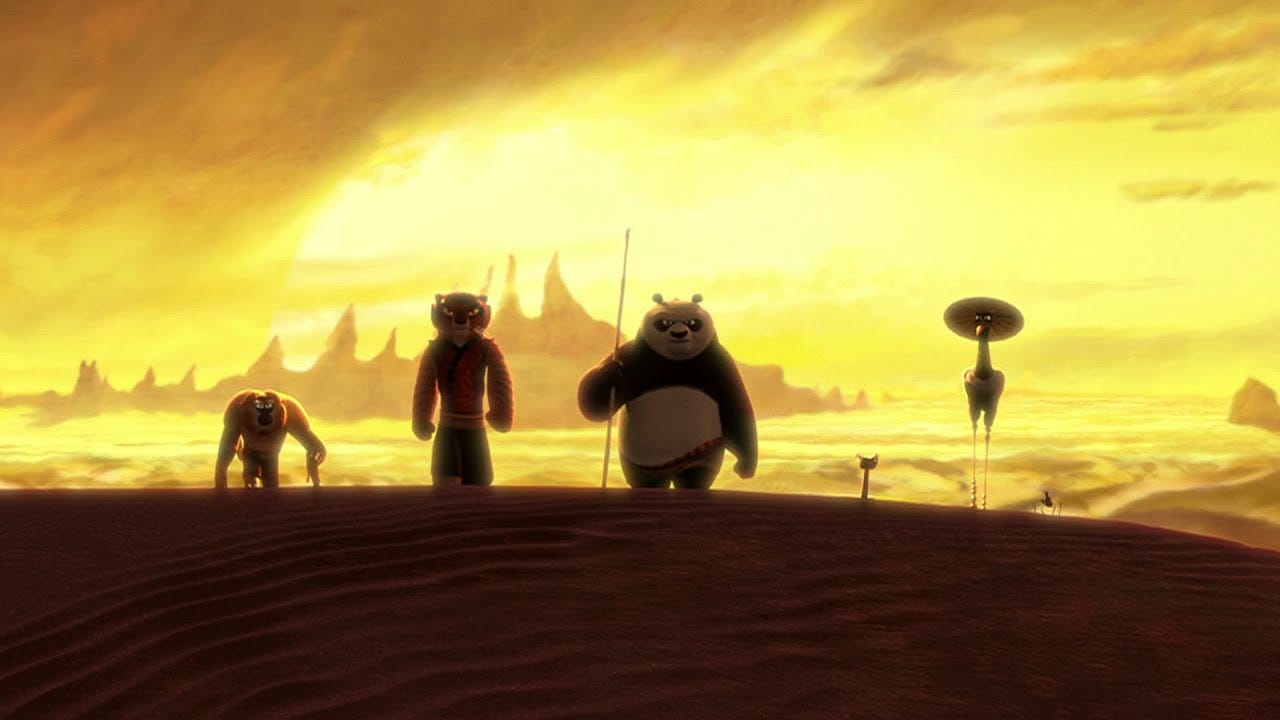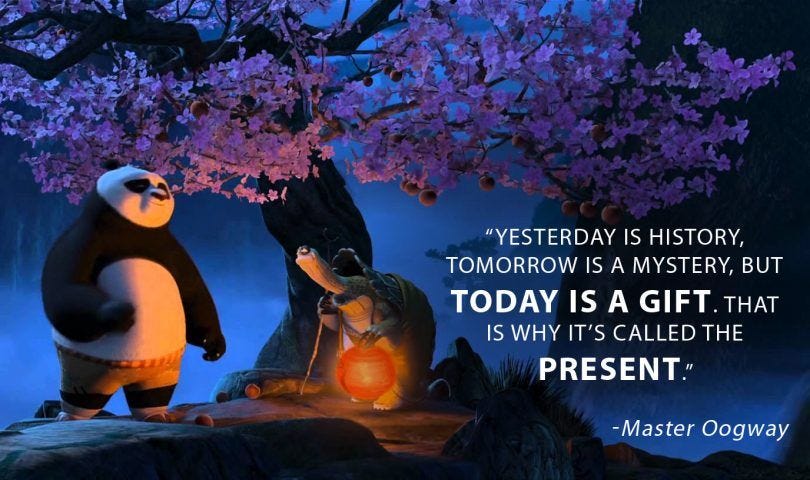Nothing Is Permanent
Don’t be afraid of change and learn to focus on the now
The man who is truly good and wise will bear with dignity whatever fortune sends, and will always make the best of his circumstances. —ARISTOTLE, ETHICS
Hello, it's Anant!
Been a while. I just got back from my first ever long term trip to Japan. I stayed in hostels, hung out with locals as well as fellow travelers, and tried a bunch of new things I’d never done before. My first real vagabonding experience as Rolf Potts describes it in his book.
One of the biggest highlights of my trip was the soto zazen Buddhist retreat that I did. It was one of the most foundational experiences I have had so far while traveling. Needing less, not chasing things, understanding yourself: these are all ideas I have written about before, but learning more about the basics of sato zazen buddhism has really helped me develop these ideas further and understand them better. I am excited to learn more and more deeply engage with the religion as well as the practice.
Nothing is permanent
As I mentioned in my last post, I’ve been losing friends and finding peace, leaving for Japan was tough. I had traveled before, but almost never for this long, and definitely not to a place where I knew no one and did not speak the language. My whole life I did not move around much and I was used to having familiar people and places around me. Giving up my one year lease and going to Japan was officially letting go of my stability in favor of a life of much more rapid change. In fact for the last five months I have not been in one place for more than a month.
For me, beginning to move around a lot started with the nihilistic idea that nothing matters. Every place you go, all the people you meet and make friends with, all the spots you become familiar with going to, even the version of yourself you are in that place, you do not get to take it with you to the next place. So what is the point? If it is not going to last, why bother in the first place?
For me the last five months were intentional change, but what I realized is that even if I stayed in SF all those five months, I would have faced change regardless (friends moving away, new work, having my lease expire and choosing a new place to live). The trip just helped me more deeply feel what was always true, which is that all things are impermanent and change is inevitable. I had begun to develop this feeling about the transient nature of life when I ran into the buddhist idea of impermanence.
The Buddhist Idea of Impermanence
The concept of impermanence is actually interwoven into the very story of how Siddhartha Gautama became the Buddha. Siddhartha was born into a royal family in what is now Nepal and led a sheltered life surrounded by luxury. Despite his affluence, Siddhartha felt a sense of unease and emptiness, as if something significant were missing from his life. This internal disquiet led him to venture outside the palace walls, where he encountered the "Four Sights": an old man, a sick person, a dead body, and a wandering ascetic. These sights were Siddhartha's first real confrontations with aging, illness, death, and spiritual renunciation and had a profound impact on Siddhartha, leading him to realize the impermanent nature of life.
This led him down a spiritual journey that resulted in him discovering the Four Noble Truths, the first of which revolves around the idea of impermanence.
The Truth of Suffering (Dukkha): All conditioned existence is subject to suffering and death.
The Origin of Suffering (Samudāya): The root of suffering is attachment and desire.
The Cessation of Suffering (Nirodha): It's possible to end suffering.
The Path to the Cessation of Suffering (Magga): The way to end suffering is through the Eightfold Path.
In sato zen buddhism, the focus is not on reaching heaven or gaining salvation. No matter what you do, no matter what you accomplish, your life is going to come to an end, and everything you know and love will perish as well.
What does this mean for my life?
So what do we do with this knowledge that we and everything we build will become dust and everyone we know may or may not stay in our lives? Is just adopting a nihilistic approach the end of the discussion? Coming to grips with this idea is both difficult and important, but, of its many implications, I have come around to these four that I think are important.
Change helps you get comfortable with change
The first is the importance of embracing intentional change. In life change is inevitable, but some change will come from you and some from life. Choosing to go through change is tough, but learning how to deal with change that comes from you also helps you deal with change that comes from life. For me this intentional change came both through long-term travel as well as through work.
In San Francisco I worked at a 1,000+ person office, while in Boston, I worked in a 10 person office in the suburbs. I have worked part time remotely in San Francisco and barely worked at all while I was in Japan. This helped me become more comfortable with change and more confident that I can be alright in many different circumstances, including ones I have not faced yet.
One example of this is that before traveling, I was a little nervous about the idea of retirement. I could not imagine a world without work, and so feared what it would be like. How devoid of meaning life would feel. The funny thing is that this fear did have some basis in truth and I began to miss doing creative work like writing this newsletter when I was in Japan. While it was tough, there were also benefits I could not have imagined like how good it feels to have the newfound ability to wonder and be free in how you can structure your time. While this experience may differ wildly from retirement, my journey has made me much more confident not that retirement will be amazing, but that whatever it is, I will be able to handle it.
Change helps you understand yourself
The second idea that comes from the belief that all things end and change is inevitable is you should embrace change as a way to understand yourself better. When you travel, you change the direction the forces of the environment pull you in and only then can you understand if you do something because you want to do it, or if it is simply an idea you have internalized since it was so prevalent around you. To quote the religious writer Kathleen Norris on travel,
It is a radical way of knowing exactly who, what, and where you are, in defiance of those powerful forces in society that aim to make us forget.
In addition, it is also not true that you can’t take anything with you from one period of change to another. A small example is that when I was in Japan people were always very thankful and polite. Whenever I was eating at a restaurant, shopping, or really just engaging locals in any meaningful way, they would enthusiastically thank me and I learned to instinctually thank them back (arigatō gozaimasu). Even though I had to let go of the habit of thanking people in Japanese and bowing when I came back to the States, I kept the increased awareness of and gratitude for every interaction I had with others. Therefore, the important people, experiences, and values you encounter on the road can stick with you even if they do not retain their physical proximity to you.
Knowing things will end helps you stay in the moment
The third important idea that comes from the belief of impermanence is that you should learn to be fully present for whatever happens in the moment. Even if I do not meet any of the friends I made in Japan again, I would definitely have preferred the trip where I did meet them over the trip where I did not. Similarly in life, a life where you have people you cherish around you, even if it is not always the same people, is better than one where, because a relationship may not last forever, you cherish no one. Therefore, just the time we already spent with others makes it worth meeting them, even without any future expectation of anything from them. Nothing else would have made that time as worthwhile.
Several of the practices of soto zen buddhism also center around this idea of letting go of expectation from the future and focusing on the present. Today, many people think of meditation simply as a way to boost productivity, or thinking deeply in order to achieve their desires. However, Dōgen Zenji, one of the founding figures of soto zen buddhism, stresses the idea of “shikantaza” and non-thinking. He stresses letting go of thoughts as they come to you, and simply being present to the surroundings around you. The idea is not to clear your mind to more efficiently clutter it afterwards, but to live in that meditative state of staying in the present. In short, we practice staying in the moment not the means to an end, but the end itself.
Appreciating your time
During my last week in Japan, I was so eager to make the most out of what was left of my trip. I took the time to sit down and think: who did I want to meet again before leaving? what were the most important few things I had left to see? how could I more meaningfully spend time with individual friends on the trip I may not see for a while?
With the understanding that my time was limited, I was able to prioritize the big things I really wanted to do and let go of everything else. I let go of arguments over dishes with friends and just focused on appreciating the time we had left together. With this renewed focus, I felt I was really able to make the last few days count, and it occurred to me: just like my time in Japan was limited, according to the belief in impermanence isn’t our time anywhere limited? As Steve Jobs famously said
“Remembering that I'll be dead soon is the most important tool I've ever encountered to help me make the big choices in life. Because almost everything — all external expectations, all pride, all fear of embarrassment or failure — these things just fall away in the face of death, leaving only what is truly important.”
Now I think keeping in mind that we will all die soon is a little extreme, and as a wannabe aspiring sato buddhist disciple still scarier to me than it is helpful. A new less extreme thought excersize I have adopted is:
If I was going to move from where I am today to somewhere else, what would I do in my last week?
What would I definitely not do and not care about?
Who would I want to meet one more time in person?
For me, this idea is about embracing travel not just as an activity, but as a mindset. Now that I am back home in San Francisco I want to see my home and the people in it not as the boring and familiar, but with the fresh and curious eyes of a traveler. I want to see it as a place that I need to continuously explore and appreciate as I can never be sure when my path will take me elsewhere.
From denying death to embracing life
In his book, The Denial of Death, Ernest Becker argues that much of human behavior, including societal structures and cultural norms, is driven by our deep-seated fear of mortality and the desire to transcend death in some way. In sato zen buddhism, chasing desires that spawn from this fear of death is the ultimate mistake and path to suffering. Only acceptance that everything will end and that change is inevitable can release you from this suffering. Keeping this belief in mind, my hope is to be able to bias towards trying new things so I can better embrace the change that comes my way, to be able to pay attention to how this change is affecting me so I can better understand myself, put more emphasis on tuning into the current moment, and appreciate all that is happening around me.





